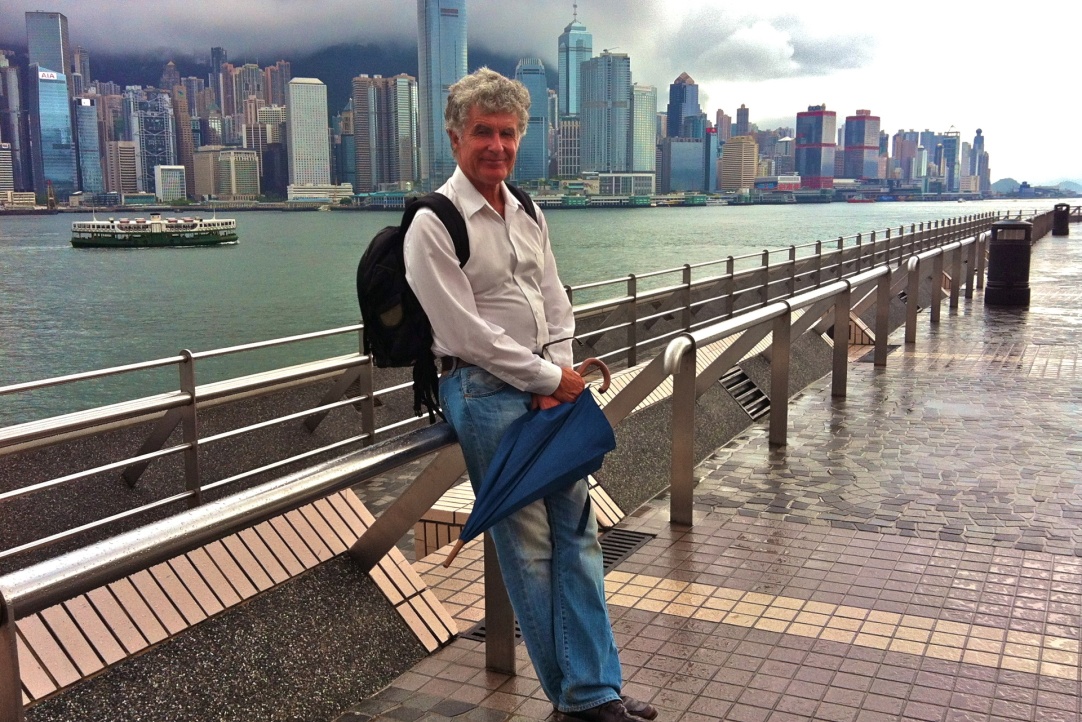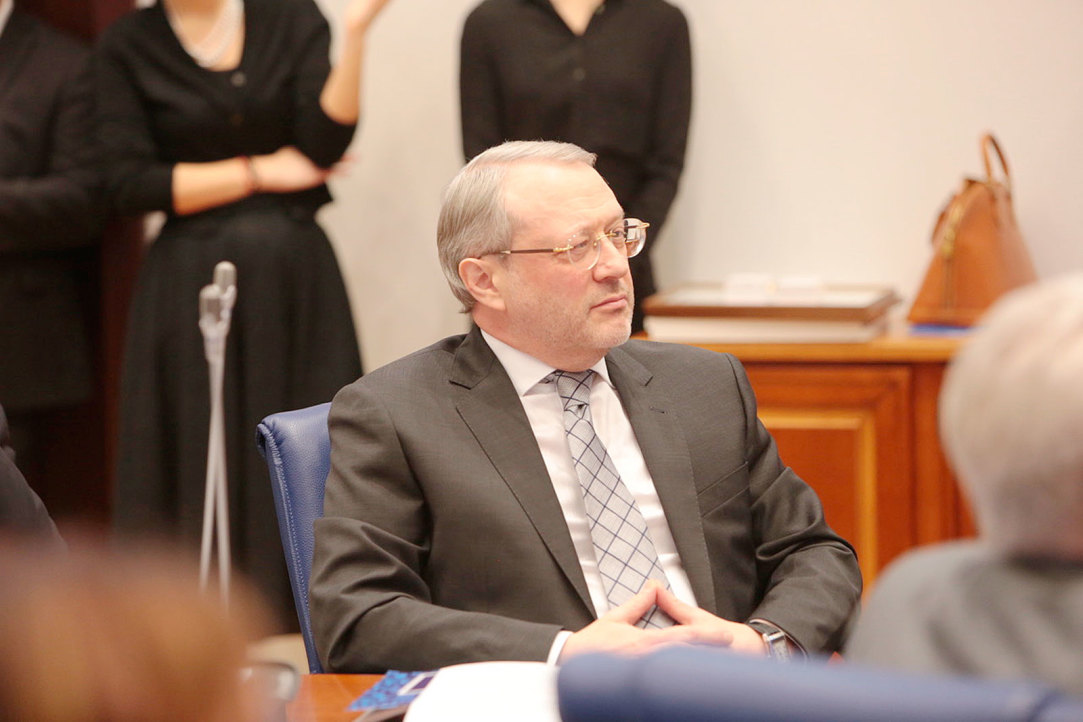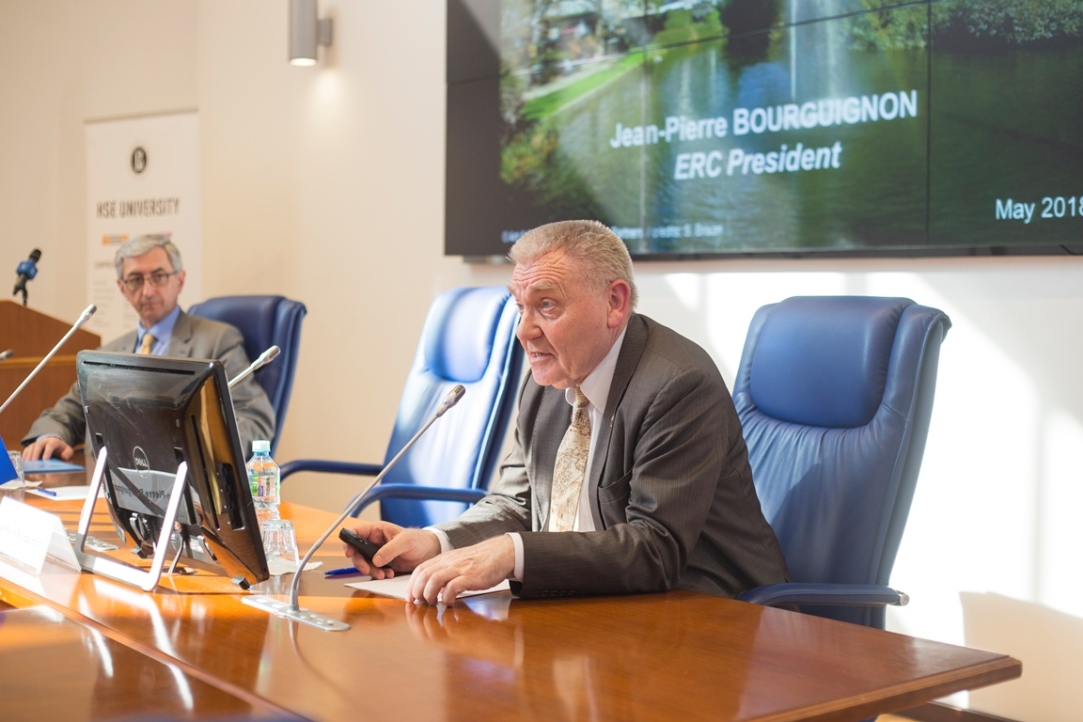
HSE Professor to Head Up Machine Learning Research at Samsung Centre for Artificial Intelligence
On May 29, Samsung opened its new Artificial Intelligence Centre in Moscow. Dmitry Vetrov, Professor of the HSE Faculty of Computer Science, will become one of its leaders and oversee research in machine learning.

Exploring Fake News and Propaganda in Today’s World
This month, Dr. Oliver Boyd-Barrett, Professor Emeritus at Bowling Green State University in Ohio and California State Polytechnic University, Pomona, delivered at open lecture at HSE Moscow entitled ‘Fake News and Propaganda’. An expert in international media, war and propaganda, and media political economy, Dr. Boyd-Barrett is the author of a number of books, including ‘Western Mainstream Media and the Ukraine Crisis: A Study in Conflict Propaganda’ (2016) and ‘Media Imperialism’ (2014). Following his lecture, he spoke with the HSE News Service about the topic of fake news more broadly and about how people can protect themselves from it.
Infantilism as a Norm
Views on human age need to be revisited. The value of adulthood as a period of certainty has declined for many, which means that this period is being delayed. The processes of personality development vary, and adults are preserving signs of infantilism.

'HSE is Now Russia’s Largest Centre for Empirical Research'
Leonid Gokhberg, HSE First Vice Rector, Director of the Institute for Statistical Studies and Economics of Knowledge, spoke on his first steps in academia, working with foreign researchers, on foresight research as well as shared his thoughts on HSE research development.
Dust Cloud around the Moon
HSE researchers, together with colleagues from Space Research Institute of RAS, MIPT, and the University of Colorado, ventured to find out where the plasma-dust cloud around the Moon comes from. To do this, they compared theoretical calculations with experimental data and theorized that this cloud likely consists of matter that rose from the Moon’s surface as a result of meteoroid collisions.

European Research Council Provides Public Funding for Research & Innovation
On Wednesday, 16 May 2018, the President of the European Research Council (ERC), Professor Jean-Pierre Bourguignon, gave an open lecture at HSE on ‘Public funding for research & innovation: The experience of the European Research Council’. The lecture was organized by HSE together with the Delegation of the European Union to the Russian Federation.

Working or Protesting
The higher the unemployment rates in Western European countries, the more likely it is that socio-political destabilization will occur. At the same time, the highest levels of unemployment in Eastern European countries are accompanied by anti-government protests of very low intensity. This is just one of the conclusions made by HSE experts in their paper ‘Unemployment as a predictor of socio-political destabilization in Western and Eastern European countries’.
‘Science Should Help in Bridging Gaps’
International cooperation in science and innovation is not only able to help solve global issues, such as the battle against climate change, hunger and incurable diseases, but also to overcome political disagreement between countries.

Unfit: Why Seniors Don’t Care about Their Health
Seniors in Russia are not responsive to public promotion of healthy living. Their behaviours follow eight different patterns, and a healthy lifestyle is far from being the most popular one. Only 17% of elderly people live what can be termed a 'healthy' lifestyle, Elena Selezneva discovered. The results of the study were presented at the XIX April International Academic Conference on Economic and Social Development at HSE.
HSE Enters Expert’s Research Productivity Ranking in 10 Subjects
The Higher School of Economics has entered the Expert Analytical Centre’s ranking in 10 subjects. The ranking studies the research productivity of Russian universities. In five subject areas, the university has taken first position in the ranking.

